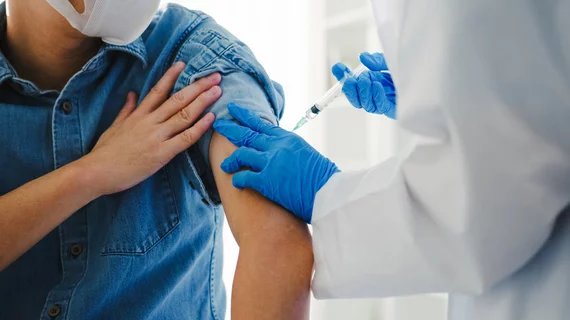COVID-19 vaccines helped heart failure patients stay out of the hospital and live longer
Heart failure (HF) patients who received a COVID-19 vaccine are significantly less likely to be hospitalized for HF symptoms or die for any reason, according to new data presented at Heart Failure 2024, a scientific congress of the European Society of Cardiology (ESC).
The analysis included data from more than 651,000 adult Korean residents with HF. The average patient age was 69.5 years old, and 50% were men. Approximately 83% of patients were fully vaccinated against COVID-19, meaning they received two or more doses of an approved vaccine.
The study’s authors compared 73,559 vaccinated patients with 73,559 unvaccinated patients, matching them 1:1 according to age, sex, comorbidities and other relevant patient attributes. The median follow-up period was six months.
Overall, COVID-19 vaccination was associated with an 82% lower risk of all-cause mortality, 47% lower risk of hospitalization for HF and 13% lower risk of testing positive for COVID-19. Vaccinated patients also had lower rates of stroke, heart attack, myocarditis/pericarditis and venous thromboembolism during that six-month period.
“Patients with HF should be vaccinated against COVID-19 to protect their health,” lead author Kyeong-Hyeon Chun, MD, of the National Health Insurance Service Ilsan Hospital in South Korea, said in an ESC statement. “In this large study of patients with HF, COVID-19 vaccination was associated with a lower likelihood of contracting the infection, being admitted to hospital because of heart failure, or dying from any cause during a six-month period compared with remaining unvaccinated.”
Chun did emphasize that all of these patients were from Korea, meaning the findings “may not be applicable to all patients with HF.” Also, he added, the small cardiac risks associated with vaccination “should be considered in patients with unstable conditions.”
Heart Failure 2024, the annual meeting of the Heart Failure Association of the ESC, runs May 11-14 in Lisbon, Portugal. Click here for additional details.

